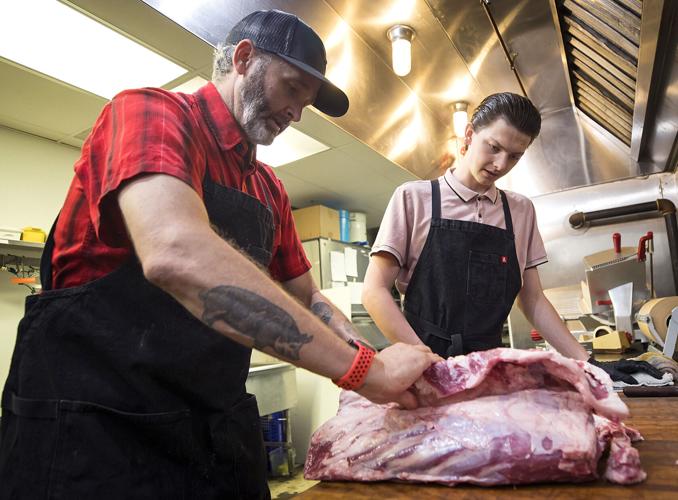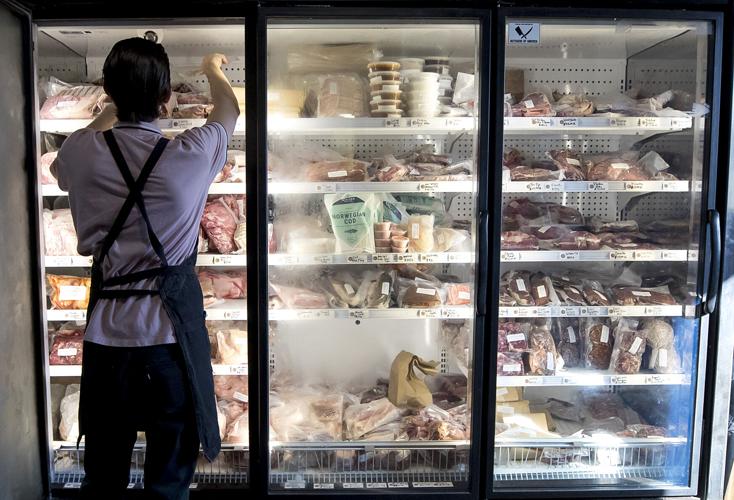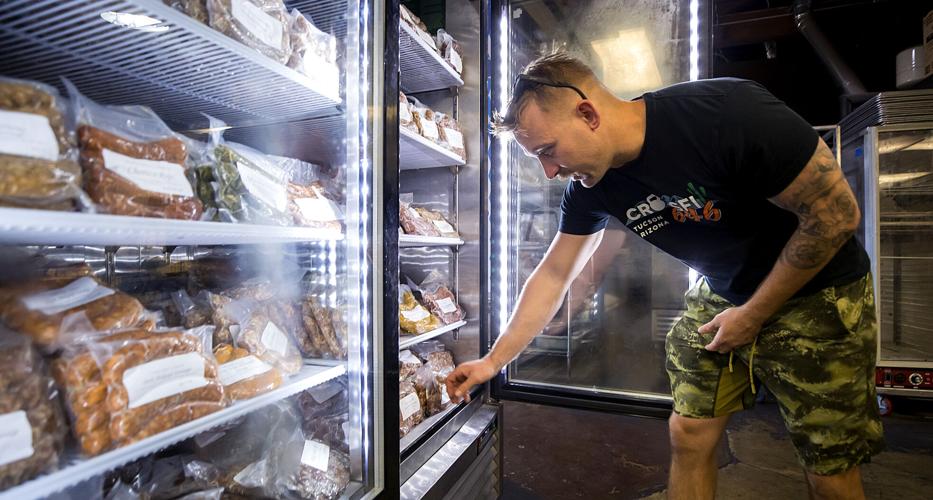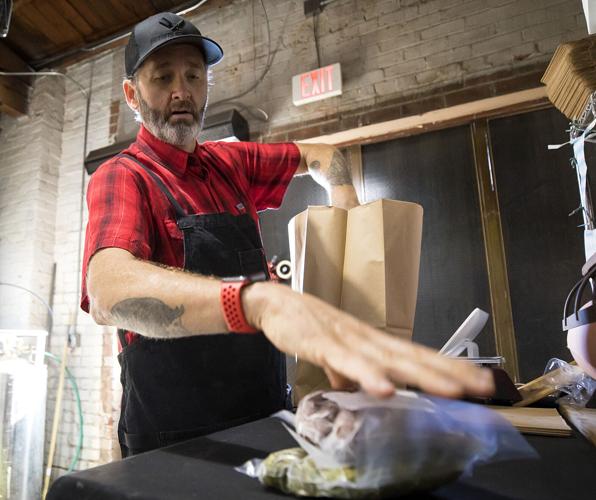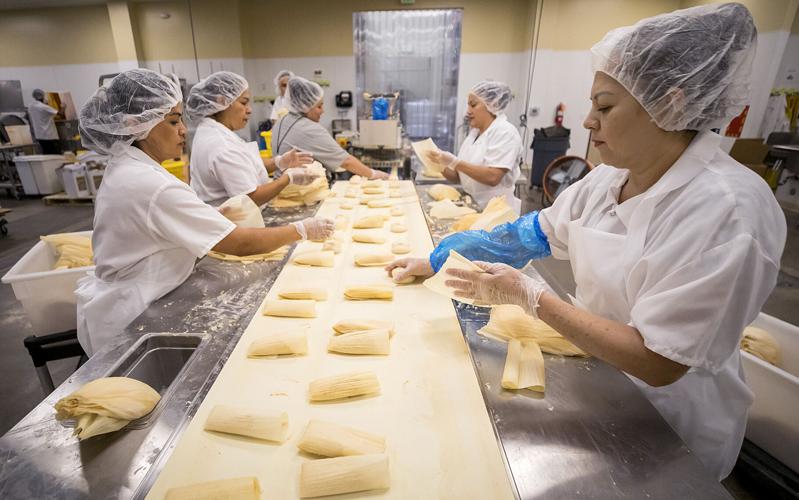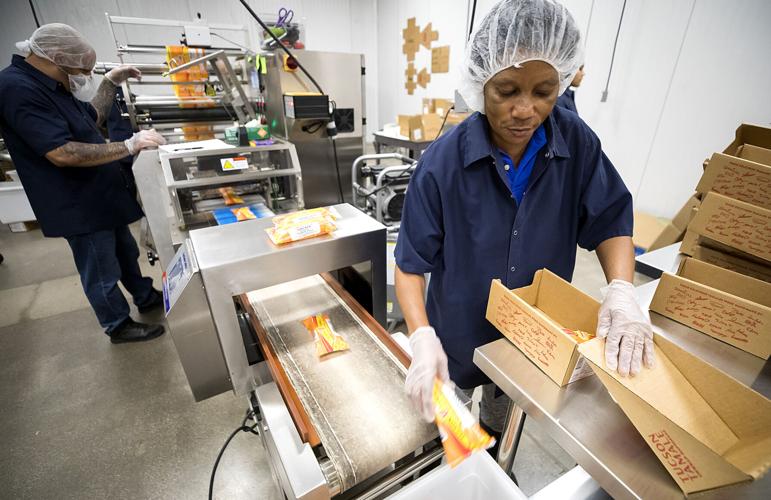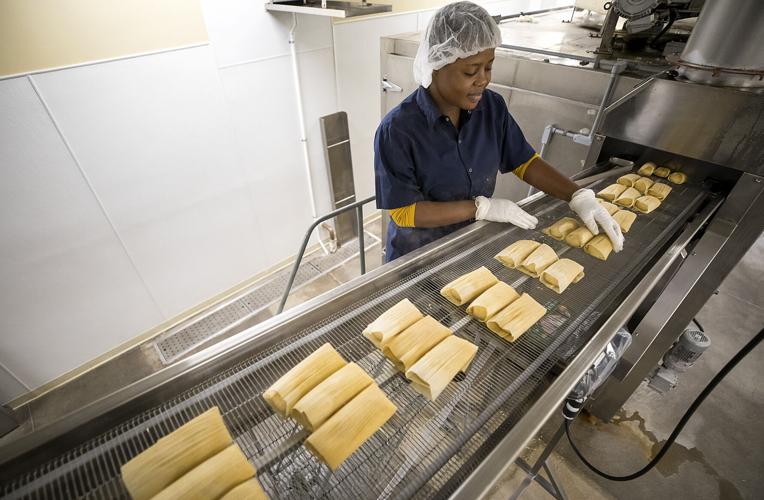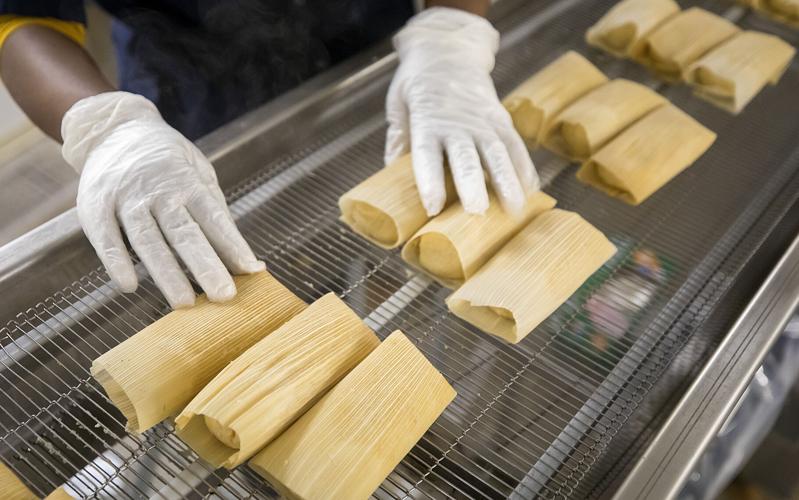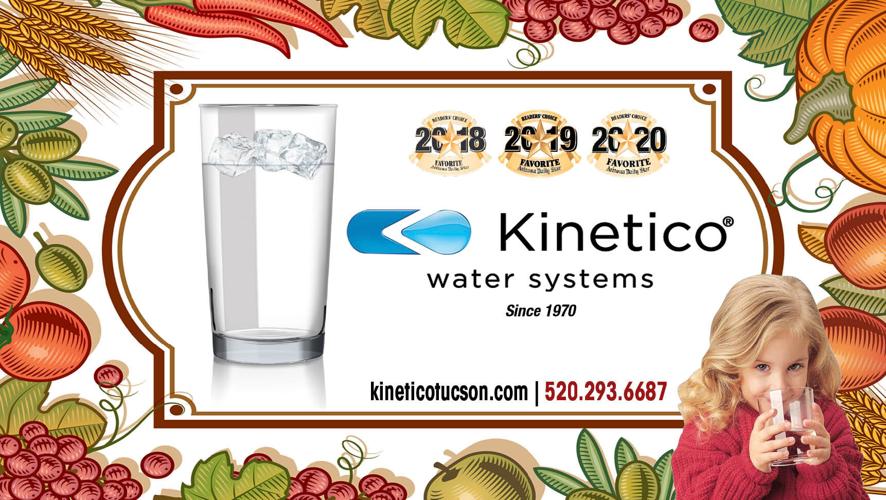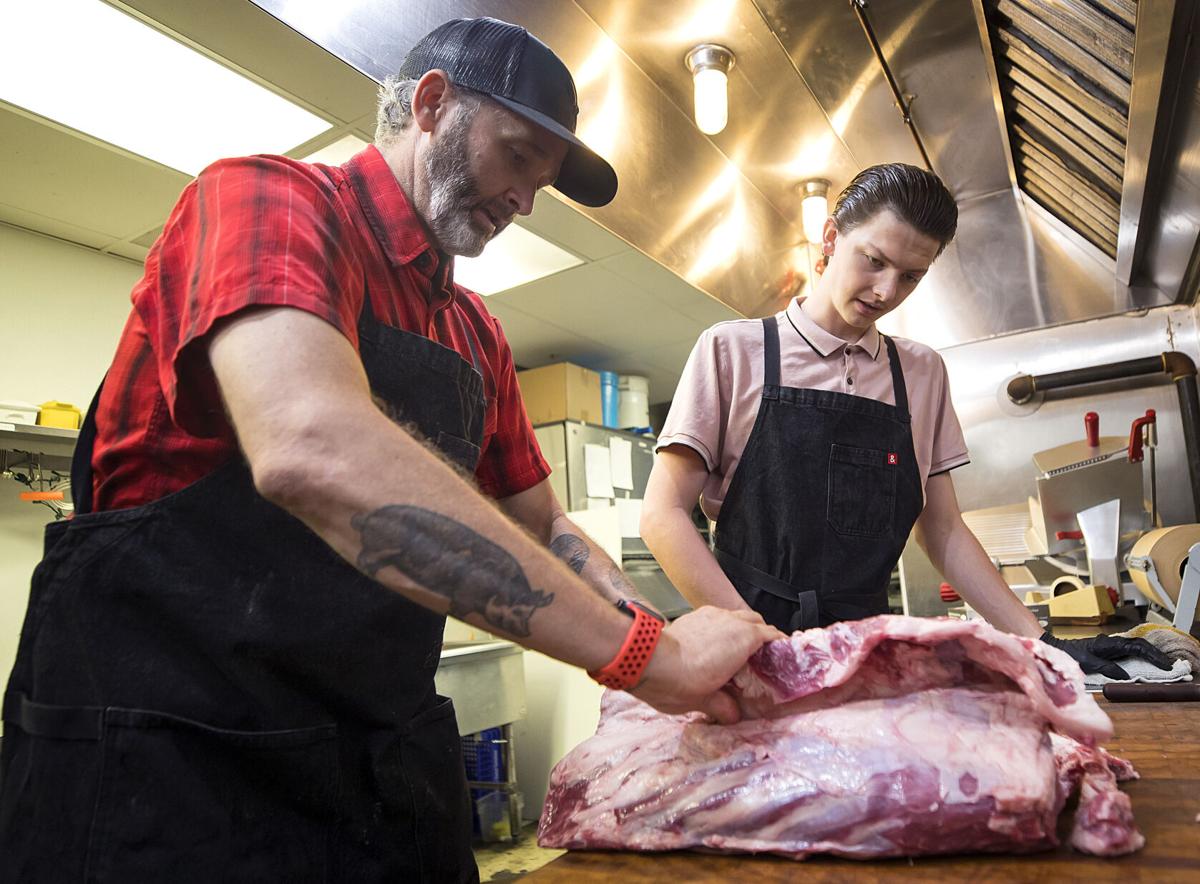What are the factors that determine Tucson’s food scene? We have a long heritage of Sonoran cuisine, a dramatic seasonal mismatch in demand, and most importantly, a fervent desire to support local. Ask anyone who has been keeping Rocco’s Little Chicago alive through years of construction on Broadway, or the hordes of fans still mourning the closures of favorites like Bentley’s, Donut Wheel, or Wings Over Broadway.
Tucson Tamale Company and Forbes Meat Company are both choosing to raise capital from Tucsonans — choosing to crowdfund over a traditional bank loan to expand their ventures. When Tucsonans are investors, they are taking on a small stake of both the risk and reward of a company that they do not control. So far, community members have invested over $400,000 in these two businesses, with no guarantee of a financial return.
Crowdfunding started with platforms like Kickstarter, where users pledged money to creative projects they believed in, for a cute reward in proportion to their tier of investment: stickers for $5, a signed album for $50. We’ve heard the stories — multimillion dollar campaigns for failed game consoles, diabetics relying on the public to pay for expensive insulin. Crowdfunding isn’t what it used to be.
Now, platforms like Wefunder and Mainvest are attempting to rebrand crowdfunding as a micro-investment. Unaccredited individuals who meet a few crucial criteria are able to bet $100 or $1,000 that a company will turn a profit. If they choose the right horse, they can receive returns in the form of stock options or a multiple on their initial investment. While companies plan on succeeding and bringing returns back to their investors, they cannot make guarantees. The platforms are explicit in the risks: on Mainvest’s site, they state, “Only invest if you can afford to lose your entire investment.”
Though some people use micro-investment platforms to find businesses to wager on, many investors prioritize supporting a business they care about over financial returns. These platforms also allow us to invest in the local businesses that continue to define Tucson’s food scene. So what exactly are these companies offering to Tucsonans, and at what stake?
Forbes Meat Company

Zane Hoishman, butchers apprentice, looks through the refrigerator at Forbes Meat Company on Oct. 12, 2022.
You may have noticed Forbes Meat Company gearing up for an expansion. While they have had a lease at the upcoming Baffert property at the Five Points intersection for over a year, their original butcher shop downtown (220 E. Broadway) has been offering weekly sandwich specials and intimate classes on butchery topics like making sausage. These are the previews of what they hope to offer at the new butcher shop at The Baffert, which plans to include a small grocery offering beer, wine and Pivot Produce, and a bistro space for a limited seasonal menu and one sandwich offering at a time.
“Our basic menu premise is a French bistro, where it’ll be steak frites: homemade French fries Belgian-style, steak and chimichurri to go with it,” owner Ben Forbes said. “It’ll be hot in the summertime, so it’ll be fresh Cobb salad with dungeness crab. Three to four things that are really good. Friday-Saturday night wine dinner; 10 people only, reservations only, and that’s it.
“Everything else on top of the butchery is an extra, fun layer for us. With that comes a responsibility to the consumer: I don’t want to be closed on Mondays because everything is closed on Mondays and I f—ing hate it. I am off on Mondays, all my restaurant friends are off on Mondays. It’s hard to have your doors open on a Monday in July when no one wants to go out.
“Definitely our expenses are going up, we’re relying on the butchery to help things. At the end of the day, I know I’m not going to be a millionaire, but I’m happy because I love doing what I’m doing and the people I’m doing with,” he said.
The capital campaign will go to a few projects: the most pressing is finishing construction on the new shop, which will be covered by the first $50,000 raised. Any money on top of that will go toward a walk-in freezer and finishing touches on the interior and exterior of the shop.

Ben Forbes, owner and butcher, packages a customer's order at Forbes Meat Company on Oct. 12, 2022.
Ben was drawn to crowdfunding because it’s cheaper money than a bank loan. He was guided down the crowdfunding route by friends at Ten55 Brewing Company, which began as a private platform startup. The fees for Forbes Meat Company’s platform, Mainvest, are a flat percentage rather than the interest a bank would charge with a loan. Other businesses that have succeeded on Mainvest’s platform are similar to Forbes: local bakers and restaurants, breweries and dispensaries.
While there is no guaranteed return on investment, the largest potential return for investors would be 1½ times the original pledge. If Ben reaches his financial goal, $200,000, he’ll owe exactly $312,000 ($12,000 is Mainvest’s cut) to Mainvest and his supporters.
He has already raised enough to cover construction and the cost of a walk-in freezer, with the help of two private donors, who each invested over $50,000.
If Forbes hadn’t raised enough funds to open, though, Ben said that he would not have been able to open the space at The Baffert and all investors would have had their money returned to them. “I cry for about a week and rethink my life," Ben said.
Now that they have reached their goal, “Regardless of what happens — say I get in an accident and I can’t move forward and I have to pull the plug, same thing. All the investors would get their money back,” Ben said.
“Once we open the doors, all the money is spent, and the world goes to s— again in some way and we can’t pivot and make money, there is that loss. Once the money is spent, that’s when there’s the possibility of risk,” he said.
“The money goes back to my community, not to a bank. We’ve been supported by this community for five years now. Individuals reached out to me saying, we want to support this. To do what we’re going to do with the community behind us is who we are, what we’ve always been,” Ben said.
So the premise is not unlike Kickstarter, except instead of a product-related novelty, you’re hoping to get 1½ times your investment in return for supporting his business.
Ben will give regular updates to investors about profits. “Every quarter, we’ll do reporting, here’s what our profits are and here’s what we can pay out, here are the dividends down the road,” he said.

Customer Josh Dyer grabs some sausages out of a refrigerator after talking with Ben Forbes, owner and butcher, at Forbes Meat Company on Oct. 12, 2022.
Investors are supporting a business and hoping for a financial return. Because the largest potential return is a flat proportion, the bet investors are making is whether the business will eventually make $300,000 in profit to return to them. In the meantime, they’ll receive a 5% discount from the shop.
“There’s definitely the risk factor for them, but for me — these are my friends, this is my community. I don’t want to let them down,” Ben said.
Ben’s a single dad to daughters. He has a neighbor with a daughter down the street. During the pandemic, “my house was the dinner house,” Ben said. “What am I going to make for dinner tonight? It was that chemistry of, we didn’t really know each other, but we got to know each other from sharing a meal. I really want that supper club, family community, growing experience for all of us in Tucson. That’s what’s going to make us unique.”
Tucson Tamale Company

Jacquline Trejo-Jimenez, right, tamale roller, and fellow tamale rollers place filling inside corn husks at Tucson Tamale Company’s south-side production facility on Oct. 12, 2022.
Tucson Tamale Company also wants investors who align with their vision.
“Throughout the years, so many people have come up to us — hey, I’d love to invest in this. We’ve always said no, because we didn’t need it,” co-founder and executive vice president Todd Martin said.
The decision to crowdfund is for people who believe in what they've done. That includes establishing a tamale company that distributes frozen tamales to vendors across the country, from grocery stores in Chicago to the tamale appetizer available in Amtrak dining cars. What began in a small storefront in the Sam Hughes neighborhood has become two brick and mortars in Tucson and two factories that employ 65 Tucsonans and make 35,000 tamales a day, according to their Wefunder site.
“Because of demand for our product, we have to increase our ability to produce,” Todd said. “We were running at 120% capacity at our old facility. The only way we could grow the demand for our product was to open up another manufacturing facility.”

Eliza Ange, packer, places finished packaged tamales in boxes at Tucson Tamale Company’s south-side production facility on Oct. 12, 2022.
Manufacturing facilities rely not only on the labor of individuals, but large equipment that adds greatly to upfront costs. On their Wefunder site, Tucson Tamale reports a debt ratio of over .6, which according to Investopedia, is not necessarily a bad thing, but could make it more difficult to obtain a loan from some banks.
While Todd said that he did not feel qualified to explain the debt ratio, he did explain that: “We have the debt because we just opened another manufacturing facility and financed $2 million worth of equipment.”
Their capital campaign on Wefunder is for another $1.07 million, which is cited on the site to go toward research and development, marketing campaigns, developing new channels for their products, and expanding production.
But their base goal of $50,000 is to raise money to advertise their new products, including the launch of two lines in the next six months that aren't tamales — the first time they're going beyond tamales.

Zawadi Moambi, tamale roller, makes sure the tamales stay together on the conveyer belt at Tucson Tamale Company’s south-side production facility on Oct. 12, 2022.
“The reason we decided on a crowd raise at this particular time — you know 'Shark Tank?' You go on with the goal of raising capital and get some expertise in your corner, but it’s also great marketing.
“We have such a loyal customer base, doing a crowd raise, you raise capital to help you grow the business, but you also have a group of people who are now owners. You have a big group of evangelists who support the brand even more,” he said.
The major difference between the Forbes and Tucson Tamale campaigns, other than the amount of money they’re asking for, is how they intend to pay investors back.

Zawadi Moambi, tamale roller, makes sure the tamales stay together on the conveyer belt at Tucson Tamale Company’s south-side production facility on Oct. 12, 2022.
While the best-case scenario for Forbes is a 1½ times return on your investment, the money investors put into Tucson Tamale is in a SAFE (Simple Agreement for Future Equity).
“The way you’ll get money back is that if there is a sale in around five years, you’ll get money back proportional to the amount that [you] invest, whether that’s in stock if we go public or a proportional cash payout,” Todd said. “If there’s ever a dividend, they’d participate in that. Selling the company, partially selling the company, bringing in a majority owner, an IPO [initial public offering].”
While they can’t make any guarantees, Tucson Tamale estimates that the financial return will happen in around five years, when they — and any potential investors — are betting the company will be worth $25 million, up from the $9.5 million in revenue they reported on their Wefunder site for this year. Until the date of the potential financial return, investors get benefits set at different tiers, from a small discount for a limited time to a larger, lifelong discount and invitations to founders’ dinners.
“It's about — people who really get what we’re doing," said co-founder Sherry Martin. “Our tamales are in 6,000 locations nationwide. Our tamales are an ambassador for Tucson, Tucson’s food scene ... making sure the world knows how to spell Tucson.”
For more complete financial details and to see their full pitches, visit Forbes Meat Company’s Mainvest site and Tucson Tamale’s Wefunder site.

Great food and drinks start with great water
Restaurants, breweries and coffee shops know that clean, pure water is crucial. You can get that at home too with Kinetico Quality Water. Kinetico removes more contaminants than any other system. Get up to $500 off a non-electric, high efficiency, patented Kinetico system (restrictions apply). Visit KineticoTucson.com.
What does "supported by" mean? Click here to learn more.


